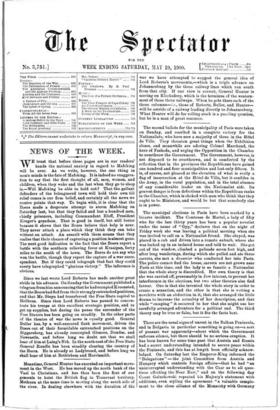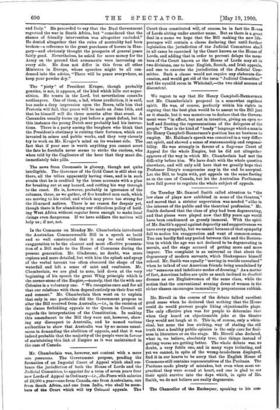There are the usual signs of unrest in the Balkan
Peninsula, and in Bulgaria in particular something is going on—a sort of peasant war apparently—about which the Government enforces silence, but there should be no serious eruption. It has been known for some time past that Austria and Russia had a secret understanding intended to secure peace within the Peninsula, and this has at length been officially acknow- ledged. On Saturday last the Emperor-King informed the "Delegations" — the joint Committee from Austria and Hungary which controls foreign affairs—that he had "an uninterrupted understanding with the Czar as to all ques- tions affecting the Near East," and on the following day Count Goluchowski repeated his Majesty's statement with additions, even styling the agreement "a valuable comple- ment to the close alliance of the Monarchy with Germany and Italy." He proceeded to say that the Dual Government regretted the war in South Africa, but "considered that the chance of friendly intervention was altogether excluded." He denied altogether that the rules of neutrality had been broken—a reference to the great purchases of horses in Hun- gary—and obviously thought the prospects of general peace fairly good. Nevertheless, he asked for more money for the Army on the ground that armaments were increasing on every side. He does not differ in this from all other Ministers in Europe, whose speeches might be all con- densed into the advice, "There will be peace everywhere, so keep your powder dry."







































 Previous page
Previous page